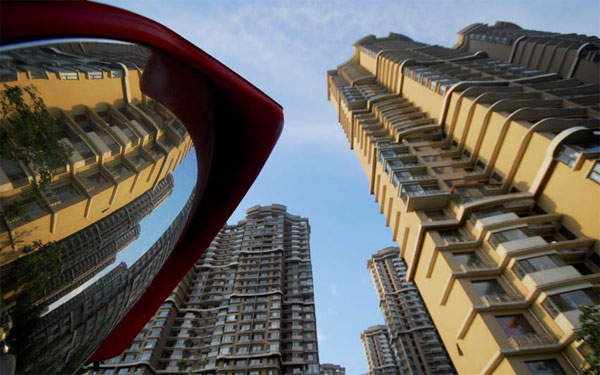Open residential roads by law
Updated: 2016-02-24 07:25
(China Daily)
|
||||||||
 |
|
Real estate investment growth fell to 2 percent in the first 10 months of this year, acting as a drag on GDP growth.[Photo provided to China Daily] |
Undoubtedly, such an idea is meant to ease the increasingly serious traffic congestion in most cities by incorporating all roads and alleyways into a city's road network.
Yet for quite a number of walled residential areas, it is a matter of whether it is legal or not for the government to tear down their walls and open their roads to public traffic.
For those walled neighborhoods, where the roads do not belong to the homeowners, there should be no problem if governments have the walls demolished and make their roads available for public use.
But for those walled residential communities, where residents have paid not only for the homes they reside in but also the other facilities, such as gardens and roads within the area, their rights to all the properties within the walled area is protected by the Property Right Law, which has explicit specifications on the issue.
Obviously, for the latter type of walled residential areas, the government will have to overcome the legal obstacles.
It is imperative and meaningful that governments at all levels govern according to the law and the Constitution. On this particular issue, governments should be aware that administrative power should not ride roughshod over the law.
The government has its own role to play if the opening of such roads is essential to the smooth flow of traffic for a specific part of a city. But they should employ legal means for the purpose, as this is the only correct approach.

 Matters of state
Matters of state
 Students begin new term with lucky bags and red envelopes
Students begin new term with lucky bags and red envelopes
 The life of a postpartum care worker
The life of a postpartum care worker
 Top 10 most Internet-savvy banks in China
Top 10 most Internet-savvy banks in China
 To eat or not to eat? Delicious and adorable art
To eat or not to eat? Delicious and adorable art
 12 photos you don't want to miss about Chinese Lantern Festival
12 photos you don't want to miss about Chinese Lantern Festival
 The world in photos: Feb 15 - 21
The world in photos: Feb 15 - 21
 China Daily weekly pictures: Feb 13-19
China Daily weekly pictures: Feb 13-19
Most Viewed
Editor's Picks

|

|

|

|

|

|
Today's Top News
What ends Jeb Bush's White House hopes
Investigation for Nicolas's campaign
Will US-ASEAN meeting be good for region?
Accentuate the positive in Sino-US relations
Dangerous games on peninsula will have no winner
National Art Museum showing 400 puppets in new exhibition
Finest Chinese porcelains expected to fetch over $28 million
Monkey portraits by Chinese ink painting masters
US Weekly

|

|







